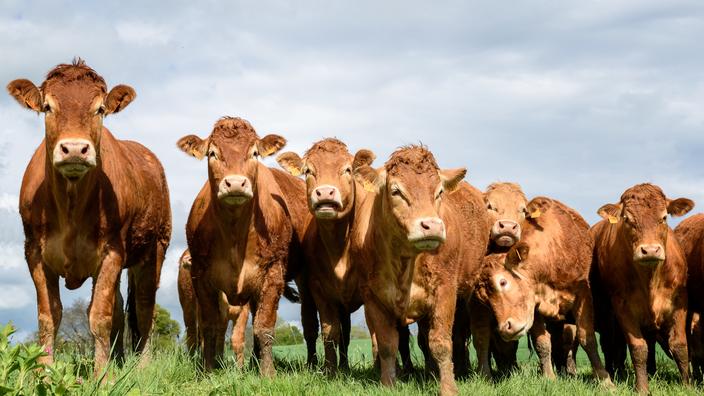Breeders, environmental and consumer associations protested Thursday against the government's draft environmental rating intended to facilitate the referral of consumers to products "
respectful of the environment
", too favorable according to them to intensive and industrial breeding.
Read also: Animal welfare: breeders also in the crosshairs
The “
carbon score
” project, announced Monday by Emmanuel Macron before the Citizens' Convention under the global term of “
Carbon Yuka
”, preceded by an “
eco-score
” applied only to the agri-food sector, “
aberrantly favors the intensive agriculture
”without taking into account the“
positive externalities
”of extensive farming systems, indicate 17 organizations defending the environment, consumers, animals, as well as the entire French organic production chain (Fnab, Synabio).
The same story goes for the Interbev breeding and meat sector (breeders, distributors, slaughterers, processors): it is
sounding
“
the alarm bells on the inconsistencies of incomplete environmental assessment systems and sources of confusion for the French
”.
Interbev, like the 17 other organizations, is questioning the public Agribalyse database, allowing economic operators to offer “
environmental
labeling
of products based on the life cycle analysis method;
this severely penalizes products from pasture breeding or organic farming
”.
This database would serve as a basis both for the ecoscore, which should enter testing in early 2021, and for the scoring system nicknamed “
Carbon Yuka
”, which is much broader, announced by Emmanuel Macron.
Interbev and the other organizations "
ask the government to correct as quickly as possible, by suspending the publication of this database, as long as the method is incomplete
".
Read also: Farmers fear a decline in milk prices
The life cycle analysis comes from the industrial sector, it consists in adding the environmental impacts throughout the production cycle to relate them to the kilogram of products.
This presents a "
major bias
"
according to opponents,
"
by promoting the shortest production cycles, and therefore the most industrial
".
With this system, meat "
from intensive American feedlots has a better environmental score than meat from cattle grazing on large areas of meadow which store carbon and protect biodiversity!"
»Says Interbev.
This is because the method does not take into account the "
services rendered
" to the environment by livestock: maintenance of meadows, storage of CO2, etc.







